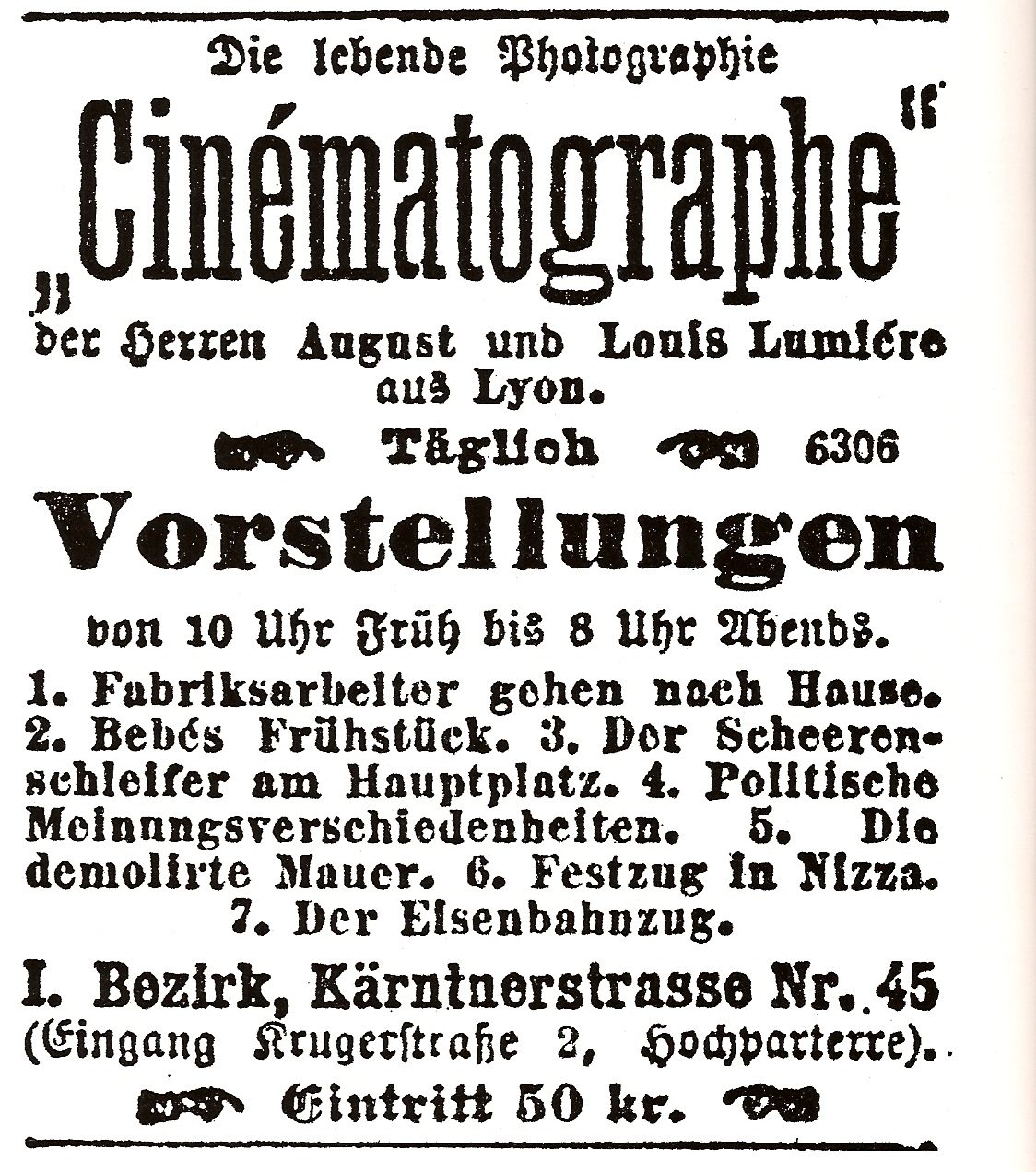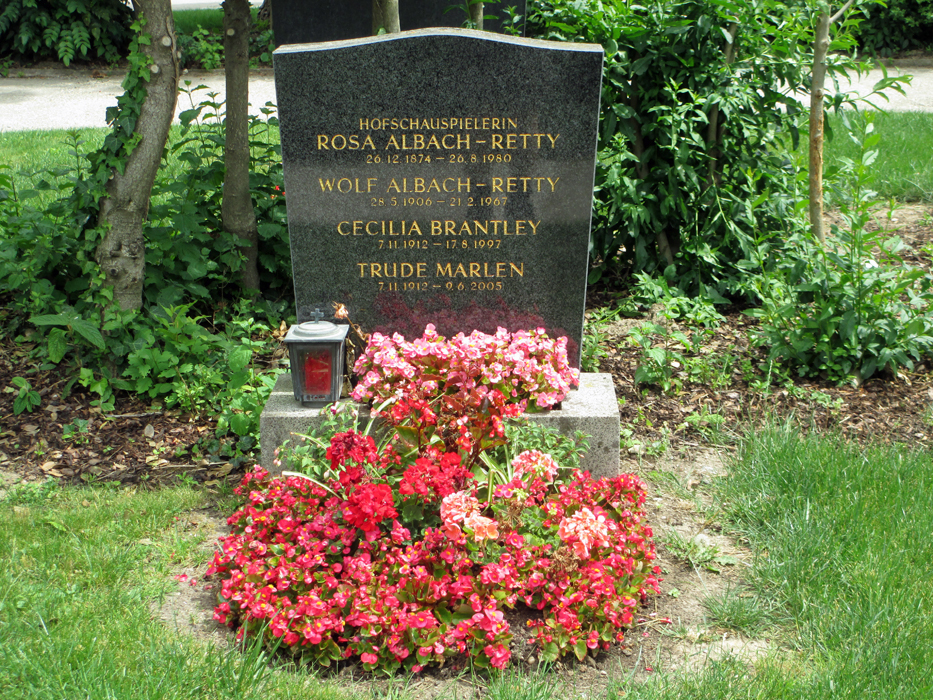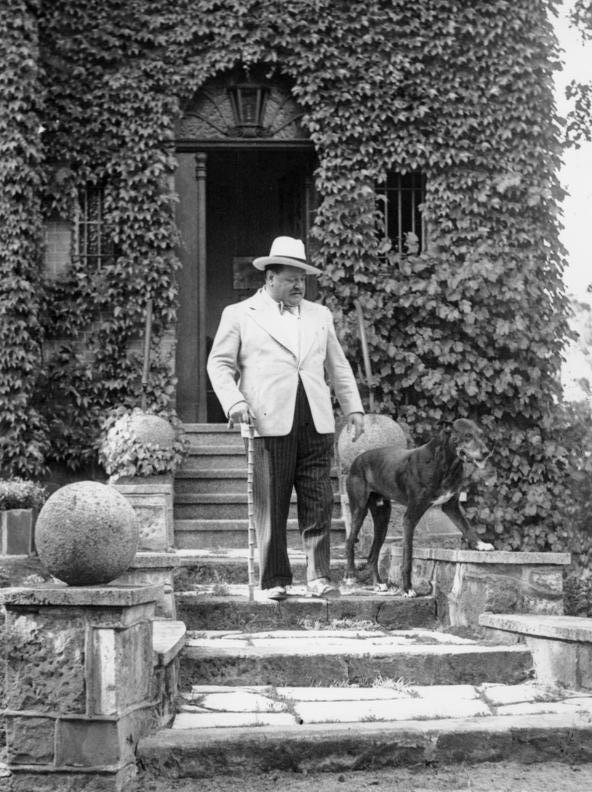|
List Of Austrian Films Of The 1940s
This is a list of films produced in the Cinema of Austria in the 1940s ordered by year of release. For an alphabetical list of articles on Austrian films see :Austrian films. 1940s 1944 1946 1947 1948 1949 External links Austrian filmat the Internet Movie Database *http://www.austrianfilm.com/ {{DEFAULTSORT:Austrian Films Of The 1940s 1940s Austrian Films A film also called a movie, motion picture, moving picture, picture, photoplay or (slang) flick is a work of visual art that simulates experiences and otherwise communicates ideas, stories, perceptions, feelings, beauty, or atmosphere ... de:Liste österreichischer Filme ... [...More Info...] [...Related Items...] OR: [Wikipedia] [Google] [Baidu] |
Cinema Of Austria
Cinema of Austria refers to the film industry based in Austria. Austria has had an active cinema industry since the early 20th century when it was the Austro-Hungarian Empire, and that has continued to the present day. Producer Sascha Kolowrat-Krakowsky, producer-director-writer Luise Kolm and the Austro-Hungarian directors Michael Curtiz and Alexander Korda were among the pioneers of early Austrian cinema. Several Austrian directors pursued careers in Weimar Germany and later in the United States, among them Fritz Lang, G. W. Pabst, Josef von Sternberg, Billy Wilder, Fred Zinnemann, and Otto Preminger. Between the two World Wars, directors like E. W. Emo and Henry Koster - the latter of whom had emigrated from Austria, provided examples of Austrian film comedies. At the same time, Willi Forst and Walter Reisch founded the ''Wiener Film'' genre. After Austria had become a part of Nazi Germany in 1938, Vienna's Wien-Film production company became an important studio for seemingly non ... [...More Info...] [...Related Items...] OR: [Wikipedia] [Google] [Baidu] |
Wien Film
Wien-Film GmbH ("Vienna Film Limited") was a large Austrian film company, which in 1938 succeeded the Tobis-Sascha-Filmindustrie AG (Sascha Film Company) and lasted until 1985. Until 1945 the business was owned by the Cautio Trust Company (''Cautio Treuhandgesellschaft''), a subsidiary of the German ''Reichsfilmkammer'', and was responsible for almost the entire production of films in the territory of the Ostmark, as Austria was called at that time. History Nazi Era The German Anschluss of Austria in 1938 put an end to the country's independent film production. The German-Austrian Tobis-Sascha-Filmindustrie AG, which had already been sold, under pressure, to the Cautio Trust Company, was transformed on 16 December into Wien-Film. The new company was officially presented with a new mission statement, signed by Joseph Goebbels: "In competition with the other arts, the purpose of film is to give form to what satisfies human hearts and what makes them shudder, and by the revelatio ... [...More Info...] [...Related Items...] OR: [Wikipedia] [Google] [Baidu] |
Hedwig Bleibtreu
Hedwig Bleibtreu (; 23 December 1868 – 24 January 1958) was an Austrian film actress. She appeared in more than thirty films from 1919 to 1952. Bleibtreu is perhaps best-known to international audiences as Alida Valli's furious landlady in ''The Third Man'' (1949). From 1893 to 1956, she played at the Burgtheater in Vienna. Hedwig Bleibtreu is the great aunt of actress Monica Bleibtreu, and the great-great aunt of Monika's son actor Moritz Bleibtreu Moritz Johann Bleibtreu (; was born in Munich, Germany on August 13, 1971. He has worked over the years as a film actor, voice actor, and film director. Bleibtreu has been a successful actor in many movies such as ''Run Lola Run, Das Experimen .... Filmography References External links * {{DEFAULTSORT:Bleibtreu, Hedwig 1868 births 1958 deaths Actors from Linz Austrian film actresses Austrian silent film actresses Austrian stage actresses 20th-century Austrian actresses ... [...More Info...] [...Related Items...] OR: [Wikipedia] [Google] [Baidu] |
Géza Von Bolváry
Géza von Bolváry (born Géza Gyula Mária Bolváry Zahn, german: Géza Maria von Bolváry-Zahn; 26 December 1897 – 10 August 1961) was a Hungarian actor, screenwriter, and film director, who worked principally in Germany and Austria. Biography Géza von Bolváry was born in Budapest. He attended the Imperial Military Academy in Budapest and subsequently served in the Hungarian army (Honved Hussars). After World War I he left military service with the rank of Royal Hungarian ''Rittmeister''. He then earned his living in the new Hungarian film industry. He began his career in about 1920 as an actor in various silent films, but soon changed to the Star-Film company, where he was first active as a director and made his debut as director and screenwriter with ''A Kétarcú asszony''. In 1922 the film concern Emelka in Munich hired him as a director for four years. Between 1926 and 1928 he worked for the firm Felsom Film in Berlin, after which he went to London for a year to w ... [...More Info...] [...Related Items...] OR: [Wikipedia] [Google] [Baidu] |
Vienna Tales
''Vienna Tales'' (german: Wiener G'schichten) is a 1940 musical comedy film directed by Géza von Bolváry and starring Marte Harell, Olly Holzmann, and Hans Moser. The film is set in Imperial Vienna at the beginning of the twentieth century. The film's sets were designed by Hans Ledersteger and Ernst Richter Ernst Friedrich Eduard Richter (24 October 18089 April 1879), was a German musical theorist and composer, born at Großschönau, Saxony. He first studied music at Zittau, and afterwards at Leipzig, where he attained so high a reputation that in .... Cast References Bibliography * External links * 1940 films German historical comedy films Austrian historical comedy films 1940s historical comedy films Films set in Vienna Films set in the 1900s Films directed by Géza von Bolváry Films set in restaurants Austrian musical comedy films German musical comedy films German black-and-white films Austrian black-and-white films 1940 musical comedy f ... [...More Info...] [...Related Items...] OR: [Wikipedia] [Google] [Baidu] |
Theo Lingen
Theo Lingen (; 10 June 1903 – 10 November 1978), born Franz Theodor Schmitz, was a German actor, film director and screenwriter. He appeared in more than 230 films between 1929 and 1978, and directed 21 films between 1936 and 1960. Life and career Lingen was born the son of a lawyer in the city of Hanover, and grew up there. He attended the Royal Goethe Gymnasium – the predecessor of the Goethe School – in Hanover, but left before taking the Abitur (final exams). His theatrical talent was discovered during rehearsals for a school performance at the ''Schauburg'' boulevard theatre. Beginning his professional stage career, the young actor adopted as a stage name his middle name together with that of the birthplace of his father, Lingen in the North German Emsland region. As "Theo Lingen" he performed at theatres at Hanover, Halberstadt, Münster and Frankfurt; in plays like ''The Importance of Being Earnest'' he very quickly earned a reputation as a superb character comedi ... [...More Info...] [...Related Items...] OR: [Wikipedia] [Google] [Baidu] |
Wolf Albach-Retty
Wolf Albach-Retty (born Wolfgang Helmuth Albert Albach; 28 May 1906 – 21 February 1967) was an Austrian actor. He was the father of Romy Schneider with the German actress Magda Schneider. Career Born as Wolfgang Helmuth Albert Albach in Vienna to actress Rosa Albach-Retty and K. u. K. officer Karl Albach, Albach-Retty trained at the University of Music and Performing Arts, Vienna, and at the age of twenty played his first role at the Vienna Burgtheater. He was a young man when he first appeared in a silent film role in 1927. In 1933 Albach-Retty became a patron member of the SS and in 1940 he joined the Nazi Party. During the Third Reich, he made romance films and musicals. In 1936 he married Magda Schneider and temporarily took up German citizenship. In 1944, he was added to head of Reich Ministry of Public Enlightenment and Propaganda Joseph Goebbels' ''Gottbegnadeten'' list of individuals that Goebbels considered crucial to Nazi culture. His addition to the list made hi ... [...More Info...] [...Related Items...] OR: [Wikipedia] [Google] [Baidu] |
Ernst Marischka
Ernst Marischka (2 January 1893 – 12 May 1963) was an Austrian screenwriter and film director. He wrote for more than 90 films between 1913 and 1962. He also directed 29 films between 1915 and 1962. He wrote and directed the Sissi trilogy - ''Sissi (film), Sissi'' (1955), ''Sissi - The Young Empress'' (1956) and ''Sissi - Schicksalsjahre einer Kaiserin'' (1957). The films were based on the life of Empress Elisabeth of Austria. He was the brother of Hubert Marischka. He was named for the Academy Award for Best Original Screenplay in 1946, for ''A Song to Remember'' (1945). Selected filmography * ''The Orlov'', directed by Luise Fleck and Jacob Fleck (Germany, 1927, based on the operetta ''Der Orlow'') * ', directed by Max Neufeld (Germany, 1932, based on the operetta ''Der Orlow'') * ''The Queen's Affair'', directed by Herbert Wilcox (UK, 1934, based on the operetta ''Die Königin'') * ''Waltzes from Vienna'', directed by Alfred Hitchcock (UK, 1934, based on ''Walzer aus ... [...More Info...] [...Related Items...] OR: [Wikipedia] [Google] [Baidu] |
Seven Years Hard Luck
''Seven Years Hard Luck'' (german: Sieben Jahre Pech) is a 1940 German romantic comedy film directed by Ernst Marischka and starring Hans Moser, Ida Wüst and Olly Holzmann.Von Dassanowsky p. 101 The film's sets were designed by the art directors Hans Ledersteger and Heinrich Richter. The film was produced by the independent company Styria-Film in German-controlled Austria. It was followed by a sequel ''Seven Years of Good Luck'' in 1942. Synopsis After breaking a mirror, a writer is convinced he will have seven years' bad luck. This complicates his romantic aspirations. Cast * Hans Moser as Dr. Teisinger * Ida Wüst as Frau Teisinger * Olly Holzmann as Gertie * Ida Turay as Lilly * Wolf Albach-Retty as Heinz Kersten * Theo Lingen as Paul, Kerstens Diener * Oskar Sima as Poppelbaum * Alfred Neugebauer as Lillys Chef * Robert Valberg Robert Valberg (28 April 1884 – 15 October 1955) was an Austrian stage and film actor. Selected filmography * '' The Traitress'' (1911) ... [...More Info...] [...Related Items...] OR: [Wikipedia] [Google] [Baidu] |
Hilde Krahl
Hilde Krahl (10 January 1917 – 28 June 1999) was an Austrian film actress. She appeared in 70 films between 1936 and 1994. She was born Hildegard Kolačný in Brod, Austria-Hungary (now Slavonski Brod, Croatia) in 1917, and she died in Vienna, Austria in 1999. In 1944 she married Wolfgang Liebeneiner; their daughter Johanna Liebeneiner also became a famous actress. Filmography * '' Die Puppenfee'' (1936) * '' Mädchenpensionat'' (1936) * '' Lumpaci the Vagabond'' (1936) * ''Serenade'' (1937) * '' Gastspiel im Paradies'' (1938) * '' Der Hampelmann'' (1938) * ''The Merciful Lie'' (1939) * '' Der Weg zu Isabel'' (1940) * '' Donauschiffer'' (1940) * '' Herz – modern möbliert'' (1940) * ''Der Postmeister'' (1940) * '' The Comedians'' (1941) * ''Her Other Self'' (1941) * '' Anuschka'' (1942) * '' Meine Freundin Josefine'' (1942) * ''Melody of a Great City'' (1943) * '' Dreaming'' (1944) * '' Life Goes On'' (1945) * ''Love '47'' (1949) * ''Law of Love'' (1949) * ''My Niece Susa ... [...More Info...] [...Related Items...] OR: [Wikipedia] [Google] [Baidu] |
Heinrich George
Georg August Friedrich Hermann Schulz (9 October 1893 – 25 September 1946), better known as Heinrich George (), was a German stage and film actor. Career Weimar Republic George is noted for having spooked the young Bertolt Brecht in his first directing job, a production of Arnolt Bronnen's ''Parricide'' (1922), when he refused to continue working with the director. He appeared in Fritz Lang's ''Metropolis'' (1927) and '' Dreyfus'' (1930), as well as starring in ''Berlin Alexanderplatz'' (1931). George was an active member of the Communist party during the Weimar Republic. He worked with theatre director Erwin Piscator and playwright Bertolt Brecht, both of whom identified with the political left. On 12 October 1932, he changed his legal name to his stage name ''George''. (NB. This document documents ''Georg August Friedrich Hermann Schulz''s birthday on 1893-10-09, as well as the change of his legal name from ''Schulz'' to ''George'' on 12 October 1932.) Nazi era After ... [...More Info...] [...Related Items...] OR: [Wikipedia] [Google] [Baidu] |



